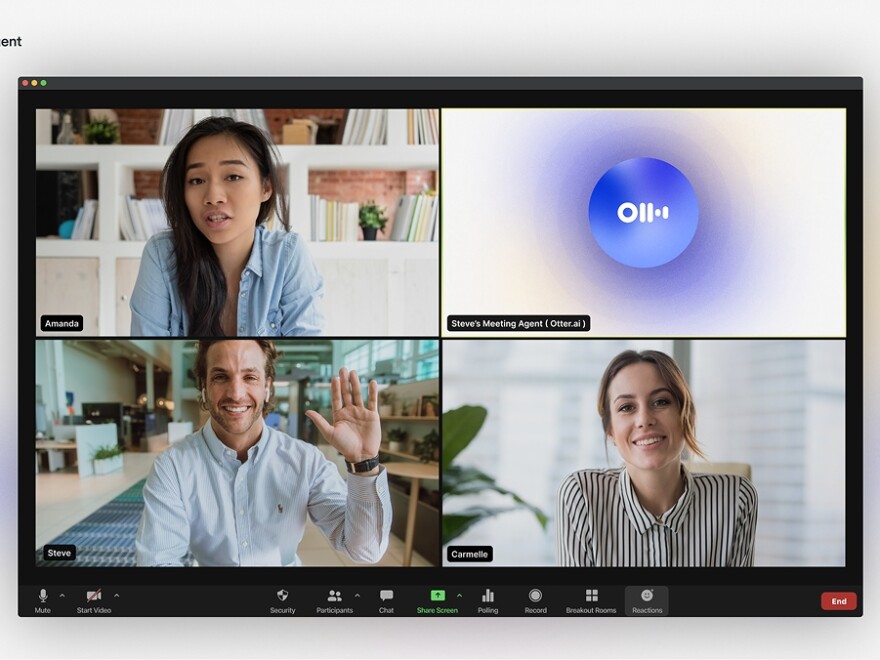Otter.ai is accused of “deceptively and surreptitiously” capturing private conversations that the tech company uses to train its well-known transcribing service without the users’ consent in a federal lawsuit requesting class-action status.
According to the lawsuit filed on Friday, the company’s artificial intelligence (AI)-powered transcription service, Otter Notebook, which can perform real-time transcriptions of Zoom, Google Meet, and Microsoft Teams meetings, by default does not request consent from meeting participants before recording and does not notify them that recordings are shared with Otter for the purpose of enhancing its AI systems.
When Justin Brewer of San Jacinto, California, discovered Otter was surreptitiously recording a private chat, he claims his privacy was “severely invaded” and he is the plaintiff in the lawsuit.
The lawsuit alleges that Otter’s secret recording violates both federal and state privacy and wiretap laws. It was filed in the U.S. District Court for the Northern District of California. It aims to represent anyone in California who have unintentionally exchanged conversations with Otter, something the attorneys claim Otter conducts in order to “derive financial gain.”
Requests for comment were not answered by Otter’s representative or Brewer’s legal team.
The AI training is not concealed by Otter’s privacy policy. When users tick a box allowing Otter and third parties to consume the private chats “for training and product improvement purposes,” it claims it has “explicit permission” from users to train its systems on meeting transcripts. However, the lawsuit claims that many people are still being tricked.
As Otter has been used more and more in offices worldwide in recent months, new privacy concerns have plagued the company.
Since its founding in 2016, the company’s AI transcription capabilities have recorded and processed over 1 billion meetings, and it currently has about 25 million users.
On websites like Reddit and X, users have posted terrifying tales of Otter’s automated recording features going awry.
When he exited a Zoom meeting with investors last year, an AI researcher and engineer told him that he had been given a transcription of the conversation that contained “intimate, confidential details” about a firm that was discussed. A contract was ruined by certain parts of the chat, according to The Washington Post.
After using Otter to interview a Uyghur human rights activist, Politico’s China correspondent discovered that the company shares user data with third parties. This raised concerns about the potential for the Chinese government to try to obtain unfiltered transcriptions of the interviews with dissidents. According to Otter, it doesn’t exchange any information with foreign law enforcement or governments.
Reddit users have voiced concerns about Otter capturing conversations without permission and joining meetings automatically when the service is connected to business calendars.
The case also brings attention to this occurrence. When a participant with an Otter account enters a virtual meeting, the program usually asks the host for permission to record, but it does not automatically ask everyone else.
“In fact, if the meeting host is an Otter accountholder who has integrated their relevant Google Meet, Zoom, or Microsoft Teams accounts with Otter, an Otter Notetaker may join the meeting without obtaining the affirmative consent from any meeting participant, including the host,” the complaint states. “What Otter has done is use its Otter Notetaker meeting assistant to record, transcribe, and utilize the contents of conversations without the Class members’ informed consent.”
According to Otter, meeting audio is “de-identified,” a technique that anonymizes data, before being put into its machine learning algorithms to enhance an AI voice recognition capability.
However, the lawsuit, which was filed on Friday, casts doubt on Otter’s capacity to carry out this task successfully because it claims the business doesn’t publicly explain its “de-identifying” procedure.
“Upon information and belief, Otter’s deidentification process does not remove confidential information or guarantee speaker anonymity,” the complaint states.
Copyright 2025 NPR






